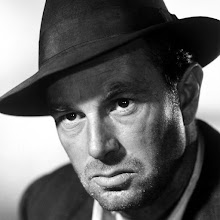Sau "Old Habits Die Hard".
:wink:
The geopolitical is about the intersection of geography and politics. It assumes that the political life of humans is shaped by the place in which they live and that the political patterns are frequently recurring because of the persistence of nations and the permanence of geography.
[...]
Our trip now is to countries within and near the Black Sea basin, so the geopolitical “theme” of the trip [...] is the Russian re-emergence as viewed by its western and southwestern neighbors: Turkey, Romania, Moldova, Poland and Ukraine. [...] My goal is to understand how these other countries see and wish the present to be. It’s not that I believe that their visions and hopes will shape the future — the world is not that accommodating — but because I want to see the degree to which my sense of what will happen and their sense of what will happen diverge.
[...]
There is another part of geopolitical travel that is perhaps the most valuable: walking the streets of a city. Geopolitics affect every level of society, shaping life and culture. Walking the streets, if you know what to look for, can tell you a great deal. Don’t go to where the monuments and museums are, and don’t go to where the wealthy live. They are the least interesting and the most globally homogenized. They are personally cushioned against the world. The poor and middle class are not. If a Montblanc store is next to a Gucci shop, you are in the wrong place.
Go to the places where the people you will never hear of live. Find a school and see the children leave at the end of the day. You want the schools where there is pushing and shoving and where older brothers come to walk their sisters home. You are now where you should be. Look at their shoes. Are they old or new? Are they local or from the global market? Are they careful with them as if they were precious or casual with them as they kick a ball around? Watch children play after school and you can feel the mood and tempo of a neighborhood.
Find a food store. Look at the food being offered, particularly fruits and vegetables. Are they fresh-looking? What is the selection? Look at the price and calculate it against what you know about earnings. Then watch a woman (yes, it is usually a woman) shopping for groceries. Does she avoid the higher priced items and buy the cheapest? Does she stop to look at the price, returning a can or box after looking, or does she simply place it in her basket or cart without looking at the price? When she pays for the food, is she carefully reaching into an envelope in her pocketbook where she stores her money, or does she casually pull out some bills? Watch five women shopping for food in the late afternoon and you will know how things are there.
Go past the apartments people live in. Smell them. The unhealthy odor of decay or sewage tells you about what they must endure in their lives. Are there banks in the neighborhood? If not, there isn’t enough business there to build one. The people are living paycheck to paycheck. In the cafes where men meet, are they older men, retired? Or are they young men? Are the cafes crowded with men in their forties drinking tea or coffee, going nowhere? Are they laughing and talking or sitting quietly as if they have nothing left to say? Official figures on unemployment can be off a number of ways. But when large numbers of 40-year-old men have nothing to do, then the black economy — the one that pays no taxes and isn’t counted by the government but is always there and important — isn’t pulling the train. Are the police working in pairs or alone? What kind of weapons do they carry? Are they everywhere, nowhere or have just the right presence? There are endless things you can learn if you watch.
All of this should be done unobtrusively. Take along clothes that are a bit shabby. Buy a pair of shoes there, scuff them up and wear them. Don’t speak. The people can smell foreigners and will change their behavior when they sense them. Blend in and absorb. At the end of a few days you will understand the effects of the world on these people.
George Friedman (Stratfor) - Geopolitical Journey
Un Whatsapp european când?
Acum 11 ore


3 comentarii:
Oare cand ajunge George Friedman prin Romania?
Sper sa tina vreo prelegere ceva. Chiar as fi interesat sa-l intalnesc.
DMZ, cam la sfarsitul saptamanii
Acum imi escplic de ce toti strainejii care vin la noi, dupa nici un an de zile, se integreaza perfect in peisaj. Including naravurile de evazionare a legii. L-au citit pe guru ...
Trimiteți un comentariu